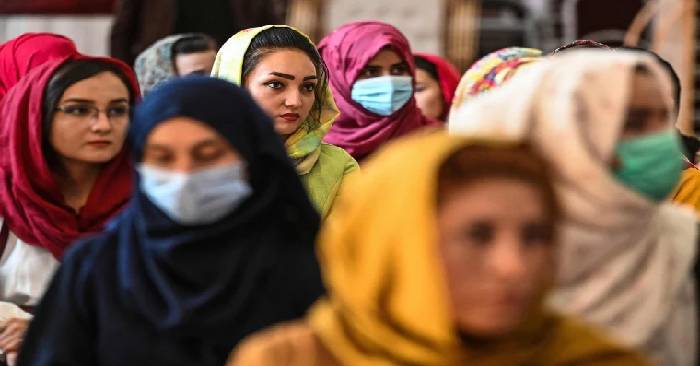Women judges in Afghanistan want to flee as they are pursued by men they once imprisoned

Afghanistan’s 250 female judges fear for their lives, with those they formerly imprisoned now free to hunt them out by the victorious Taliban. While some female judges were able to flee in recent weeks, the majority were left behind and are still attempting to flee, according to judges and activists working around the clock to assist them.
When the extremists surged to power last month as the United States withdrew its forces, they barred women from most jobs. They have stated that women’s rights will be respected, but have not provided any specifics. Women in the legal system have already been high-profile targets. In January, two female Supreme Court justices were assassinated.
The Taliban have now released inmates across the country, putting “the lives of women judges in jeopardy,” according to a high-level Afghan women judge who fled to Europe and spoke from an unidentified location. “Four or five Taliban men came into my house and questioned people, ‘Where is this woman judge?’ These were people I had thrown in jail,” she told Reuters in an interview, declining to be identified.
She was one of a small handful of Afghan women justices that escaped in recent weeks with the assistance of a group of human rights volunteers and foreign colleagues from the International Association of Women Judges (IAWJ). She has kept in touch with colleagues back home since then: “Their letters are filled with panic and fear. They tell me that if they are not rescued, their lives are in grave danger.”
She was among a small handful of Afghan women justices that escaped in recent weeks with the assistance of a group of human rights volunteers and foreign colleagues from the International Association of Women Judges (IAWJ). She has since communicated with colleagues back home: “Their communications are filled with anxiety and terror. They inform me that if they are not rescued, their lives will be in grave danger.”
She was one of a small group of Afghan women judges who escaped in recent weeks with the help of a group of human rights volunteers and international colleagues from the International Association of Women Judges (IAWJ). She has now communicated with colleagues in her own country: “Their conversations are loaded with fear and dread. They tell me that if they are not rescued, their lives will be jeopardized.”
Last Thursday, British Justice Minister Robert Buckland said London had evacuated nine female justices and was working to arrange safe passage for more of the “extremely vulnerable people.” “A lot of these judges were in charge of enforcing the rule of law, and they are understandably concerned about the ramifications of the Taliban’s ascendancy,” he said.
Human rights and legal activists claimed that in the confusion that followed Kabul’s fall, Western governments did not prioritize the evacuation of female judges and human rights defenders. “Governments had no interest in evacuating people who were not their own nationals,” said Sarah Kay, a human rights lawyer based in Belfast and a part of the Atlas Women network of international lawyers. She is collaborating with the “digital Dunkirk,” an online community of volunteer veterans named after the World War II evacuation of British troops from Nazi-occupied France. It has assisted hundreds of people in escaping through discussion groups and personal contacts.
A team of six foreign judges from the IAWJ has also been coordinating information, lobbying governments, and facilitating evacuations.
“The duty that we face at the moment is nearly unbearable because we are one of the few persons taking responsibility for this group,” Patricia Whalen, an American judge who helped train Afghan female judges in a 10-year programme, told Reuters.
“That has enraged me. We should not be in this situation.”






